From Gaza to the Giro d’Italia – the many faces of Israel Start-Up Nation
How Israel’s first WorldTour team plans to change a nation
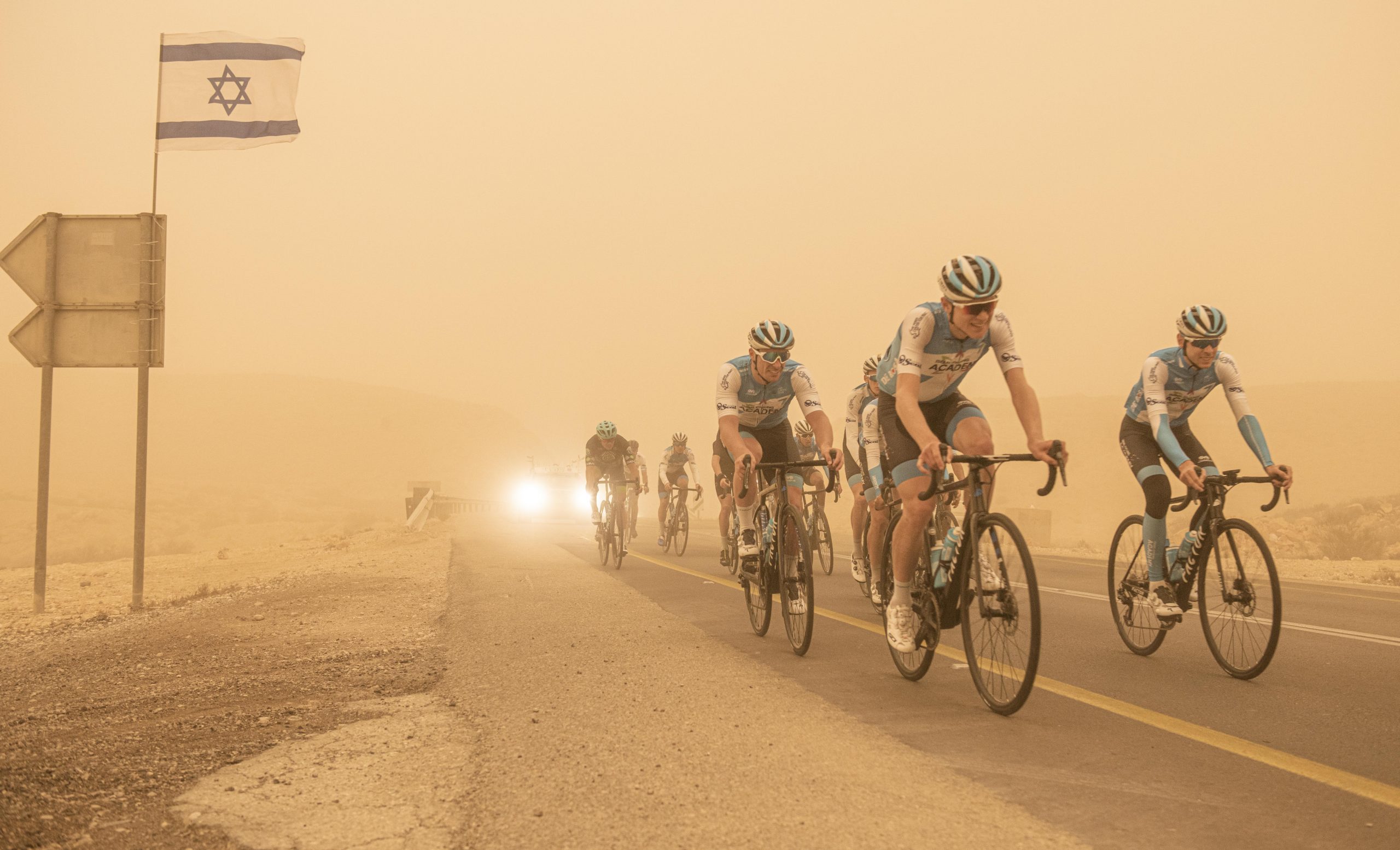

“Thank you for the question, because this is so dumb,” says Canadian billionaire Sylvan Adams, who has just touched down from Miami and is sat in the lobby of a beachfront hotel in Tel Aviv.
I had just asked Adams about accusations of sportwashing aimed at Israel after the Giro d’Italia announced the opening three stages would be held there in 2018, a decision Adams himself was integral in bringing about.
“Listen, when we have gay pride parades in Tel Aviv and Jerusalem, and we draw from the entire world of the gay community, they call it pinkwashing. When we do sport, they call it sportwashing, so anything we do is washing.
“There is no more libertarian society than Israel, tolerating, accepting and free for everyone.”
Adams is nursing a large glass of red wine that emerged from nowhere during our 30-minutes our interview, still shaking off the lingering effects of a sleeping pill he’d taken for the 12-hour flight. He’s wearing blue jeans, trainers and a thin leather jacket.
The hotel lobby is overrun by familiar faces from the cycling world – Alex Dowsett is running around like a man on a mission, Rick Zabel is introducing himself to team staff, and Dan Martin is around doing interviews.
For Adams, this occasion is special – it’s opening night for the first training and media camp for his new WorldTour team, Israel Start-Up Nation.
Get The Leadout Newsletter
The latest race content, interviews, features, reviews and expert buying guides, direct to your inbox!
The team’s story leading to this moment is familiar in many ways – an ambitious billionaire, passionate about cycling, a struggling WorldTour team searching desperately for a new backer, and of course the opportunity to race the Tour de France.
Sylvan Adams - World Champion
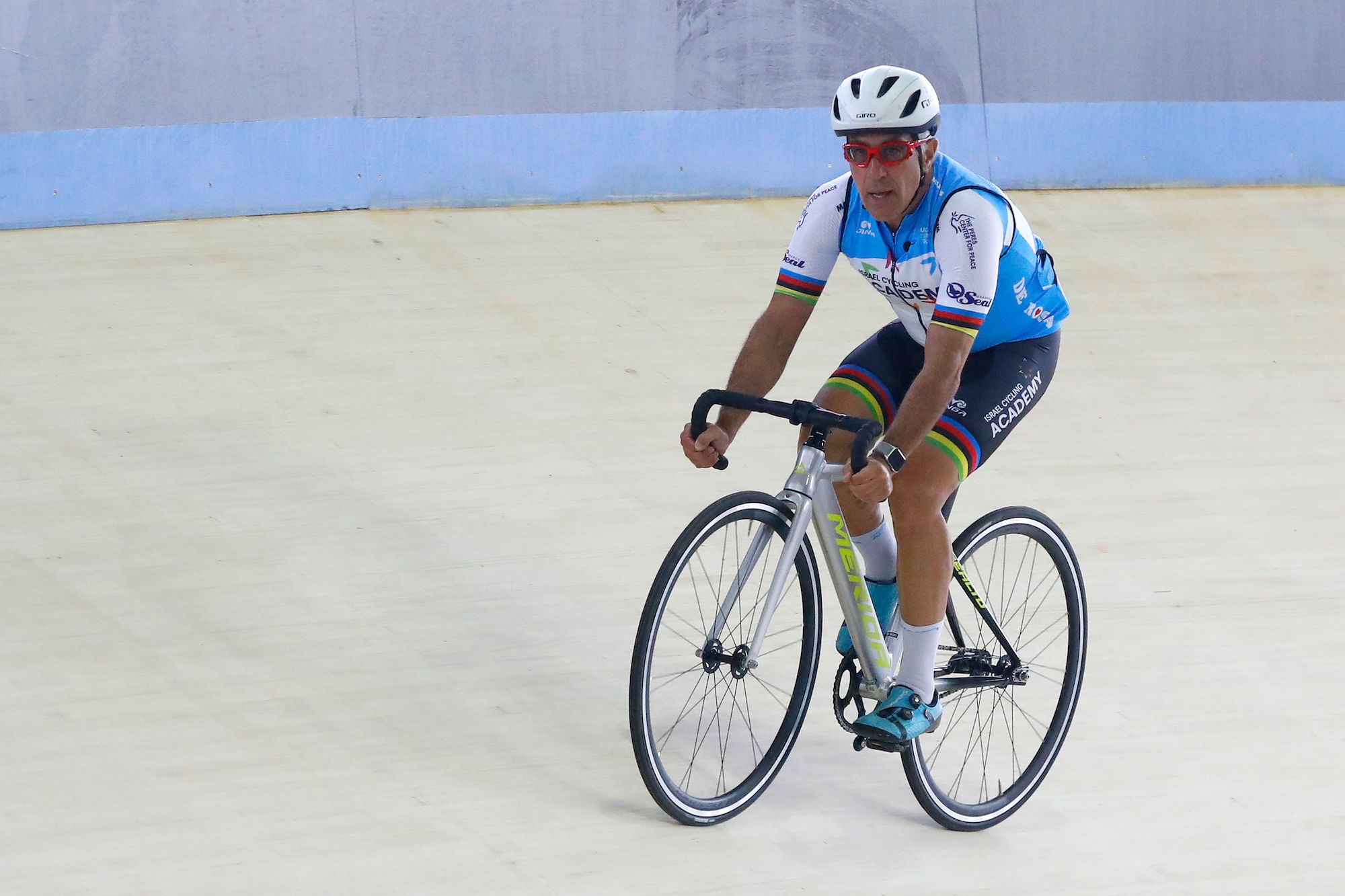
Adams’ passion for late cycling was late onset, he tells me.
After starting riding in his late 30s, Adams became friends with Paulo Saldanha while training in Canada.
Saldanha, a coach who is now performance director for Israel Start-Up Nation, was setting up his own coaching company and took Adams on as a client. Finding that Adams had some talent during testing, Saldanha suggested he try racing, which he promptly did.
Adams started racing at 41, and now as we sit talking, he boasts multiple provincial, national, Pan-American, and World Championship titles in amateur masters racing (his own Israel Start-Up Nation jersey is adorned with the rainbow bands of a world champion.)
The son of billionaire, Canadian real estate investor and Holocaust survivor Marcel Adams, Sylvan Adams served as president and CEO of his father’s development company Iberville Developments, and eventually moved to Israel in 2016, where he settled in Tel Aviv.
By that point, the Israel Cycling Academy Continental team was in its second year.
After arriving in Tel Aviv, Adams was approached by the team because he was in the process of building the Sylvan Adams Velodrome in the city, and was asked to join the board before he eventually decided to make an investment, becoming co-owner of the squad with Israel billionaire Ron Baron.
Bringing the Giro to Israel
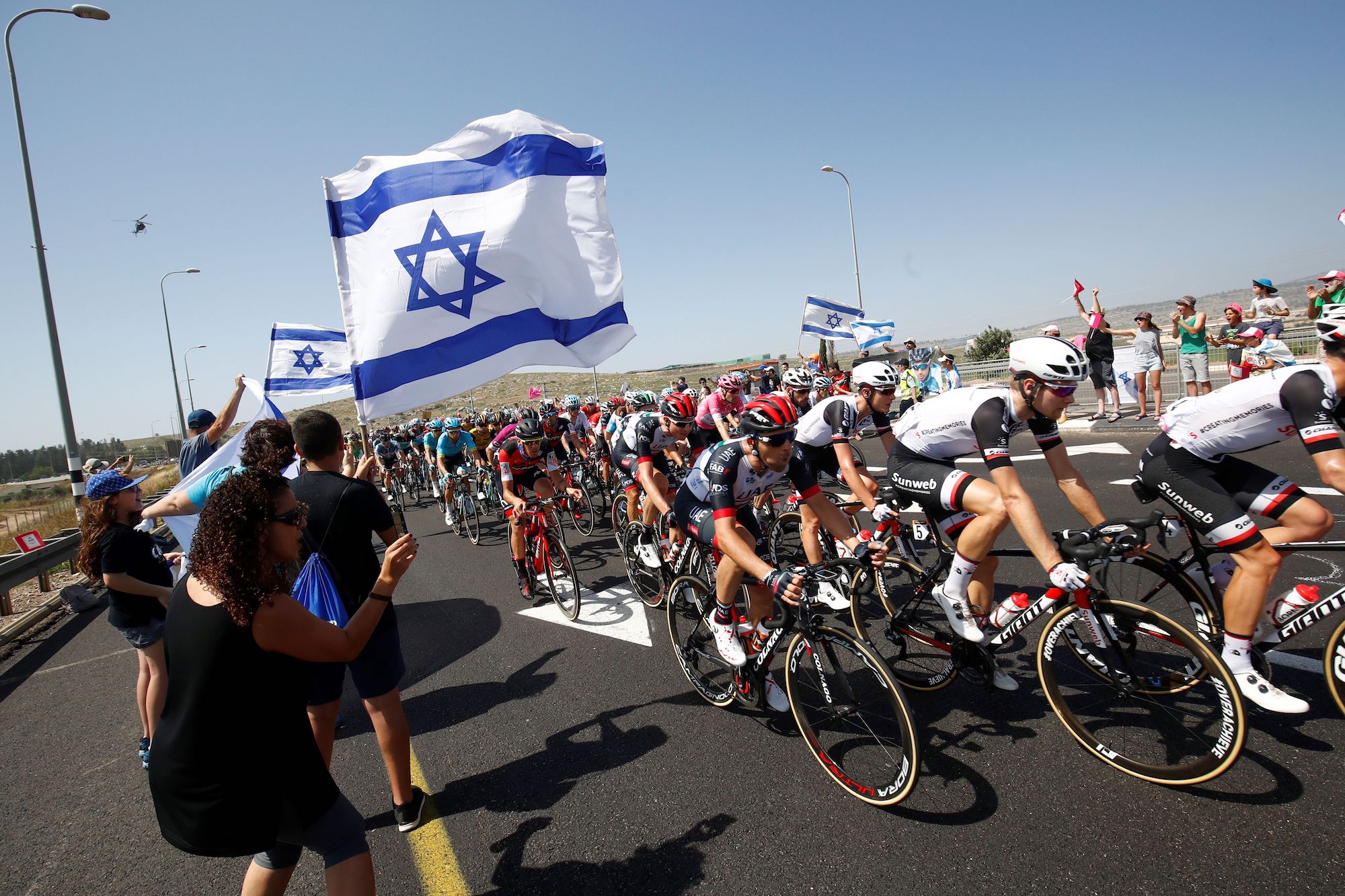
The next step in the team’s development came ahead of the 2018 Giro d’Italia – Adams had become determined to bring the Giro’s Grand Partenza to Israel, even paying for race director Mauro Vegni to fly out to the Middle East to see Jerusalem.
“He kind of laughed at me," Adams explains, "I don't think he really thought it was a serious idea. The Giro had never been outside of Europe, of course. I think he thought it was a pretty exotic idea.
“They come here and they say, 'oh boy, I did not expect the country to look and be like this', because of all the negative news reports that come out of here. And first time visitors are blown away.
“So I brought Vegni here and I took him out to show him some of the cycling terrain, but he was able to see that yes we have a cycling culture here, yes we have good and interesting terrain to hold road bike races.”
Finally, Vegni agreed - the opening three stages of the 2018 Giro would be held in Israel.
But Adams faced another dilemma, because at the time his team were only Continental level and therefore not eligible to race in a three-week event. He needed to ramp up his investment to reach the Professional Continental ranks.
“For me, the idea of bringing the big start here and not being in the in the race made no sense,” he says. “You need a home team for the fans to cheer for.
“It wasn't enough just to show ourselves abroad. It was supposed to be a big celebration together of a big event in our country, with a home team to cheer for. So we had to step up to the Pro Conti ranks and that's when I really made my important financial investment in the team to bring us into Pro Conti, which we did one year before the Giro.”
Israel Cycling Academy raced the Giro d’Italia in front of their home crowds, but the decision to hold the race in Israel did attract unwanted, if not unexpected, attention.
Israel-Palestine
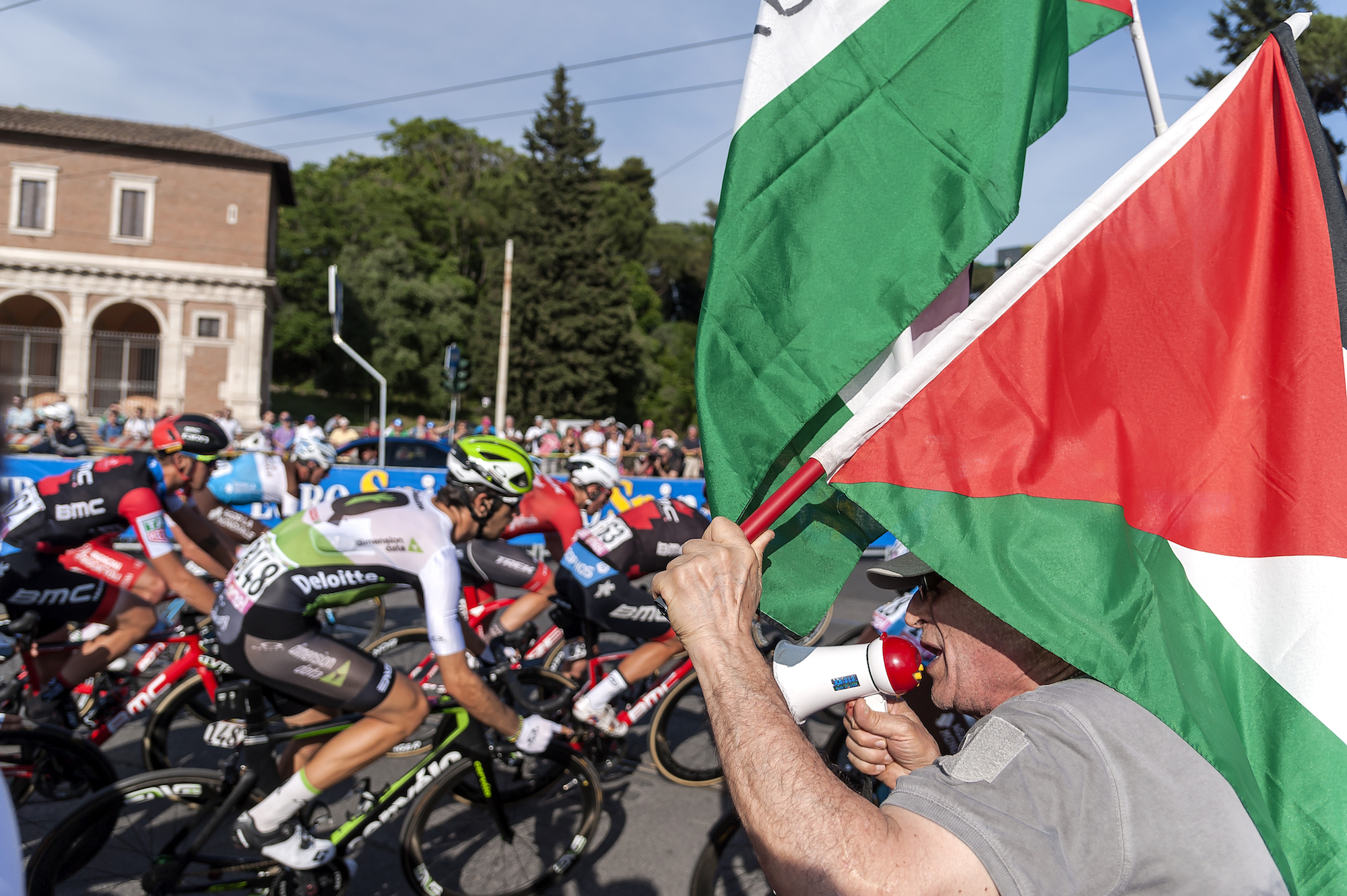
Human rights organisations and pro-Palestine groups who had long been critical of the Israeli government’s policies in Gaza and the West Bank, including the expanding Jewish settlements and the treatment of Palestinian protesters, saw the Giro’s Grand Departenza as ‘sportwashing’ – distracting the public from the real issues through cycling.
“We're just trying to be a normal country,” Adams says.
“This is a peaceful country, go and hassle people who work in totalitarian regimes. Go hassle, the slaughter that's happening in Syria next door to us. There’s no slaughter of anybody here.
“Every country has imperfections, even your blessed United Kingdom is going through a few imperfections - instead of obsessing about our small imperfections, how about coming to the party.”
But, Adams’s words may leave a bitter taste to anyone familiar with the Israel-Palestine conflict.
The long-running and deadly dispute is over land - Palestine wants to establish a true state, while the Israeli side continues to expand into Palestinian territory.
According to B’Tselem, the Israeli Information Center for Human Rights in the Occupied Territories, between 2009 and 2019, Palestine killed 97 Israeli civilians in the Occupied Territories and Israel.
The Israeli security forces killed 3,556 Palestinians in that same period.
Hagai El-Ad, the executive director of B’Tselem and prominent Israeli human rights activist, said: “Israel’s propaganda campaign, meant to allow for the perpetuation of the occupation while preventing any significant international consequences, is usually angry and loud, involving guilt-by-association smears and false accusations of anti-Semitism.
“But that very same campaign also has a fluffier side, meant to distract attention away from the realities of Palestinian lives closed behind walls and checkpoints. In that cheerful campaign, Israel is not the oppressor of millions denied basic human and political rights for more than half a century, but rather the start-up nation of cherry tomatoes and Tel Aviv pride.
“But either way, regardless of the propaganda’s tone, its goal is one and the same: not only to extend an inherently unjust reality, but to succeed in accomplishing that without becoming a pariah state.”
Even amid the controversy, the Giro was a significant moment for Israel Cycling Academy and Adams, but the step up to Professional Continental level proved double-edged.
Stepping up to Pro Conti
Adams found the Pro Conti ranks a challenging experience, with all the costs of running a fully-fledged cycling team but without the exposure secured by WorldTour status.
“I think that Pro Conti is suffering,” Adams says. “I think that it costs too much money and has too little visibility and too few opportunities for sponsorship to make it worthwhile.
“It's one thing to be Conti, which is great - you operate on a low budget, you compete in some really good races and it's all about the cycling. I loved it when we were Conti. I didn't enjoy being in Pro Conti. It was painfully expensive and we weren't getting the respect from the sponsors.”
Adams believed the only way out was up, so he began exploring opportunities to reach coveted WorldTour status and in turn secure their spot in the Tour de France.
The team began chasing promotion through the UCI’s new points system, but a sudden rule change made that impossible, so Adams began speaking to WorldTour teams, eventually meeting with around eight or nine outfits with a takeover or merger in mind.
“I came very close last year to merging with a WorldTour team, and a really good one," Adams explains. "We actually had a handshake, but at the last minute they got a sponsor and of course they wanted to keep control over the team.
“At the beginning of our discussion, many of the teams thought I was going to come in and sponsor the team.
“I’m a team owner, I’m interested in being the owner of a WorldTour team and having control because our team was always going to have an Israeli home base.”
The Katusha connection
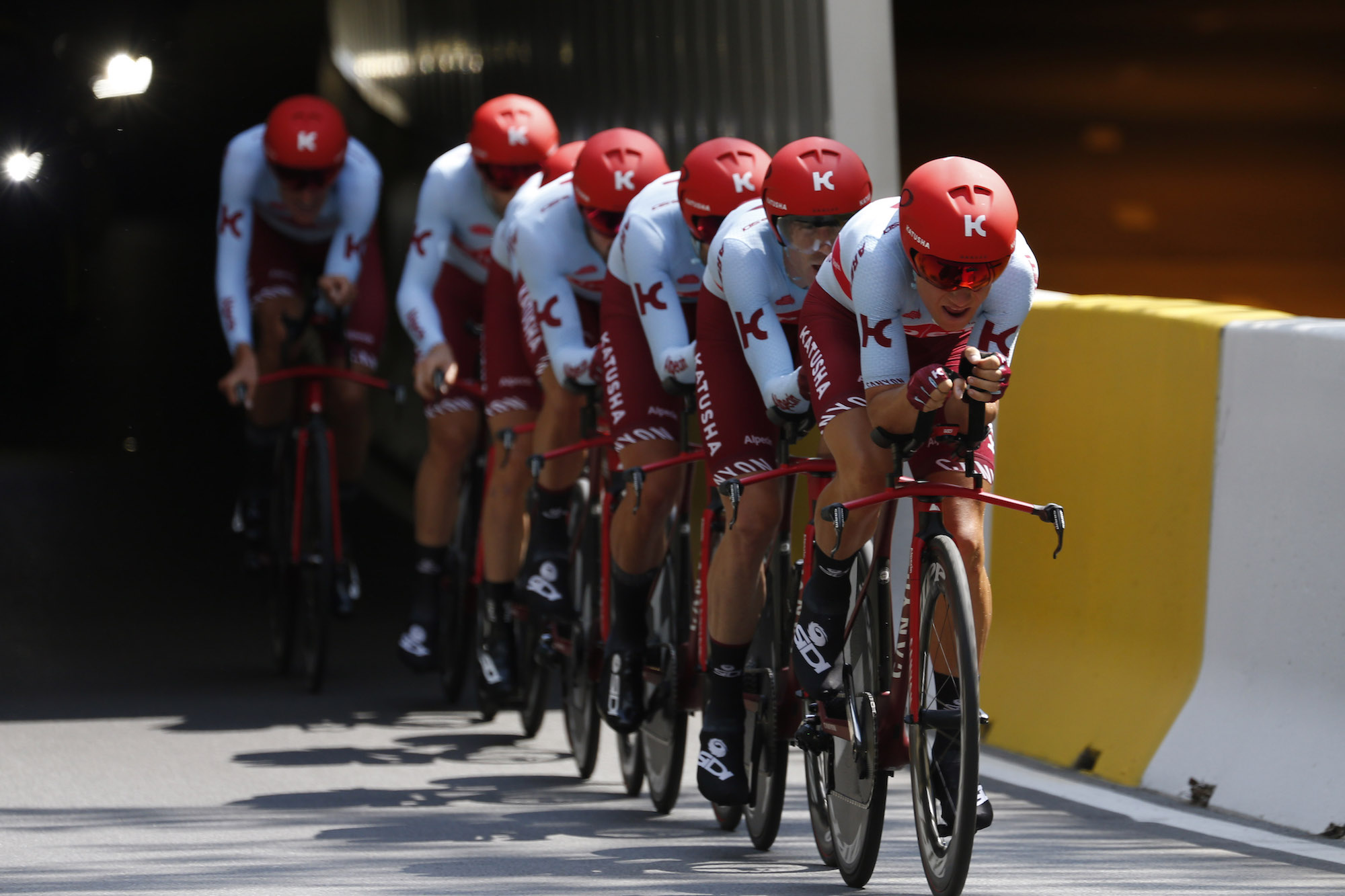
Eventually Adams was approached by Katusha-Alpecin, who had narrowly found sponsorship for 2019 but were on the ropes for 2020.
Despite the desperate situation within Katusha, the team were stalling and Adams believes they were searching out other sponsorships in the hopes of continuing under the same system. But with team owner Igor Makarov pulling his money out and the two big sponsors - Canyon bikes and German hair product company Alpecin - withdrawing to invest in Mathieu van der Poel’s Alpecin-Fenix team, prospects were gloomy for Katusha.
At the Tour de France, there was still no word from Katusha-Alpecin, but in August Adams and the team began talks in earnest.
Then in October, Israel Cycling Academy officially confirmed the takeover and began the process of choosing the Katusha-Alpecin riders they wanted to ride alongside the existing riders that would be staying on.
One Katusha riders who found a place for himself within the new team was British time trial champion Alex Dowsett, who told Cycling Weekly about his stressful and chaotic 2019 season in an interview.
Origin story
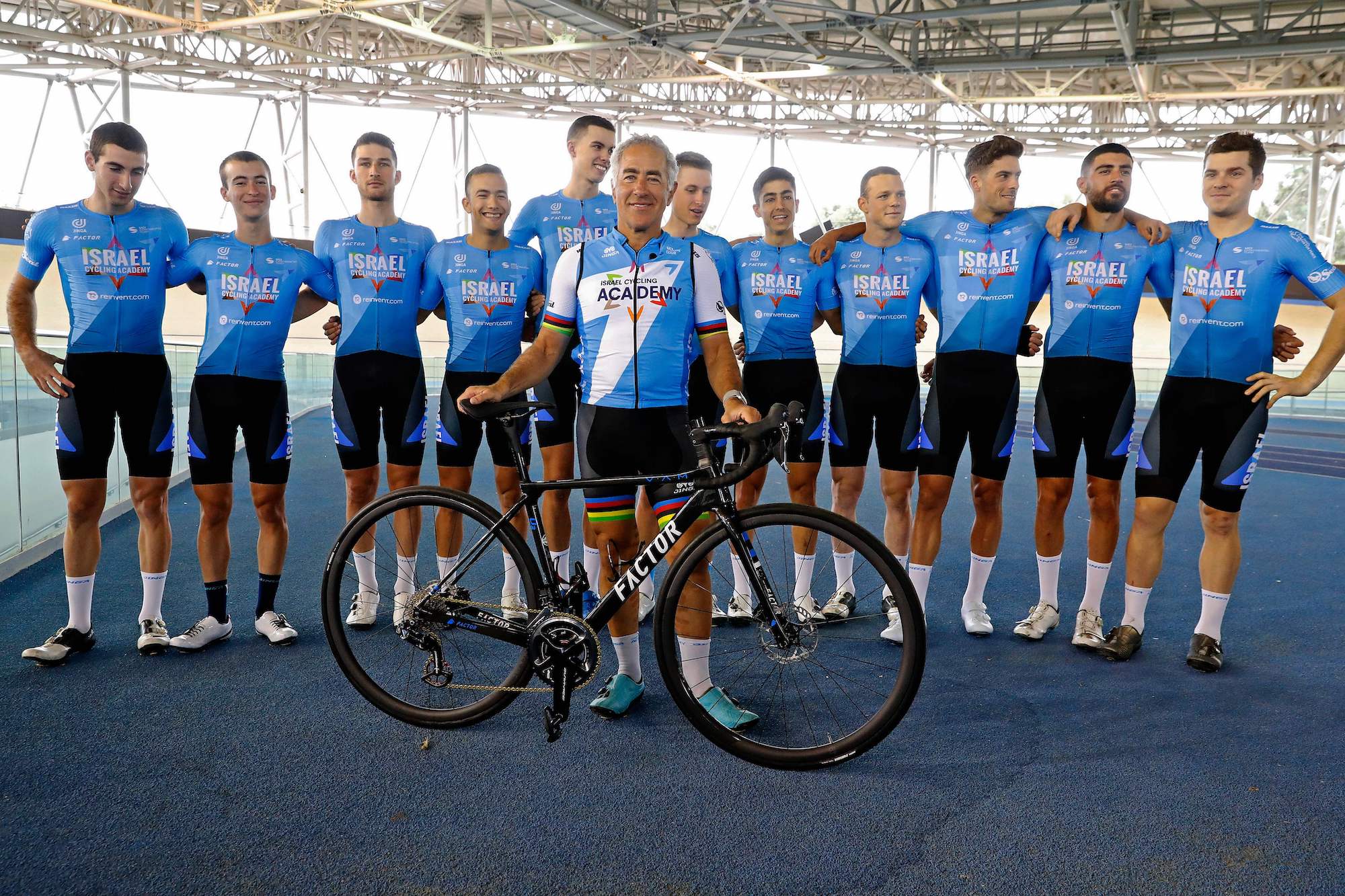
The ICA project was conceived in almost parable-worthy fashion, through a fortuitous meeting between Israeli Ron Baron and retired WorldTour and Tinkoff rider Ran Margiolot, at the summit of the Nes-Harim climb near Jerusalem while both were out on their bikes.
Since then, the impact has spread far beyond bike racing.
As part of the team's first WorldTour training camp in December the riders, including Dowsett, Greipel and Rick Zabel, visited the Bartali Youth Leadership School in Ben Shemen, 25km from Tel Aviv.
The “high-performance boarding school” is home to a small group of students from different religious and social backgrounds who are all learning through a combined curriculum of cycling training and leadership classes.
As part of their visit, the WorldTour pros helped the kids build a cyclocross course, working in the 25-degree heat of an Israeli December to give them a facility that would let them train later into the evening.
“I want to see how we can use this project to drive a real cultural change in the country," says Margiolot I'm a big believer that sport has the potential to drive a larger impact.
“It's not a secret, this country is a complicated place. People are coming from different backgrounds, have different beliefs.
“But sport, it's a beautiful platform to bring those people together despite everything, because when their two hands are on the handlebars, legs are in the pedals, where someone came from or what he thinks doesn't really matter."
An Olympic dream and the Tour de France
The next rung in Israel Cycling Academy ladder is development, which has prompted Baron and Adams to resurrect the Continental squad that started it all to nurture a steady flow if Israeli talent and operate as a feeder team for the WorldTour squad.
I met the 13 young riders signed to the Conti squad at the Sylvan Adams Velodrome in Tel Aviv, where they put on an exhibition scratch race for the gathered journalists.
The man charged with raising the next generation of Israeli cyclists through the track programme is Steve McEwan, a Scot who formerly coached the Dutch squad before joining the Israel track programme in 2019.
The goal: this year, McEwan wants a rider in the under-23 European Track Championships, before Israel hosts the Junior Track Championships in 2021. Then it’s all eyes on the 2024 Olympics, where the team hope to have the first Israeli cyclists compete in the Games.
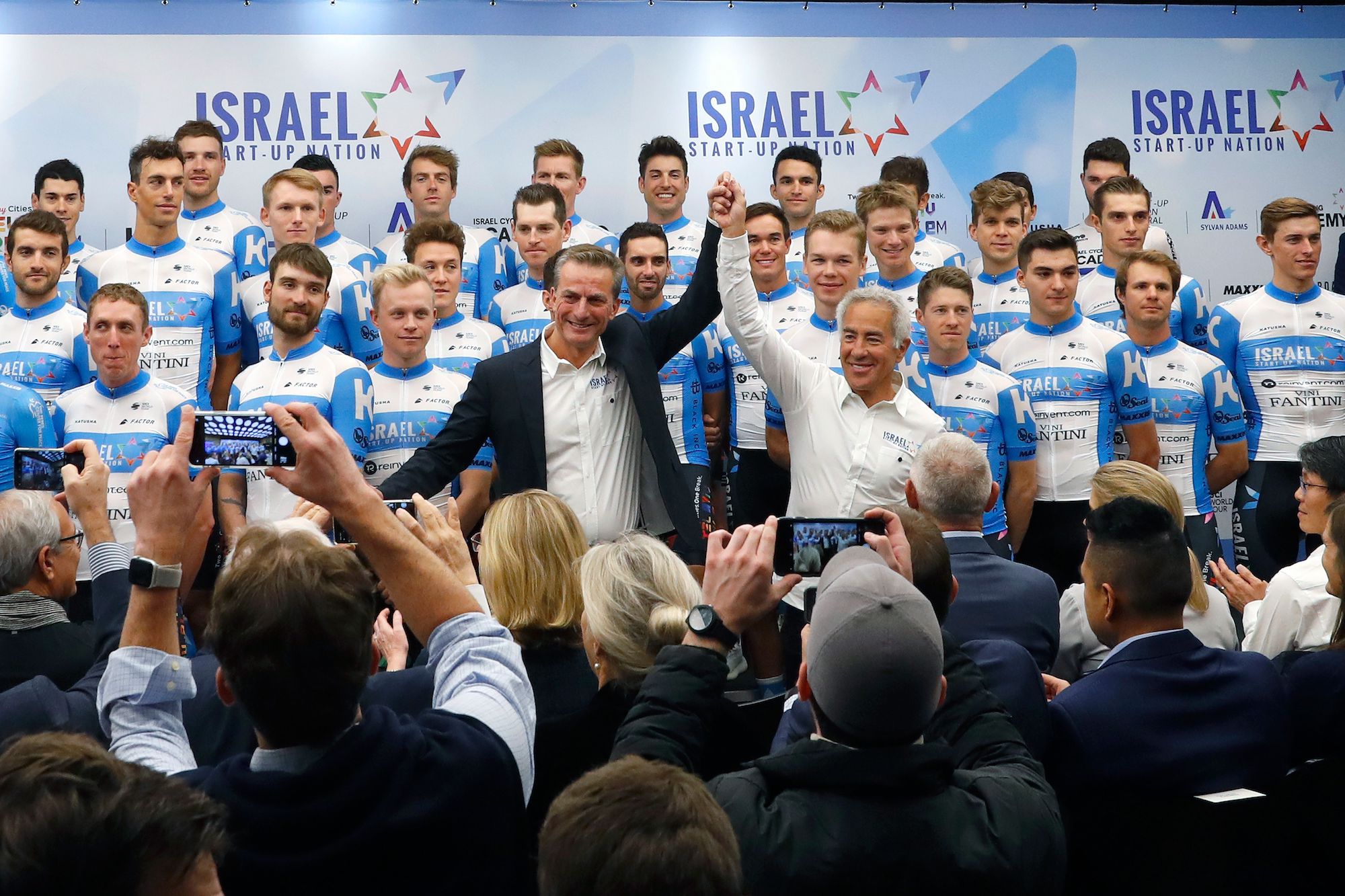
This year though, Margaliot, Baron, and Adams are poised to make history, as reaching the WorldTour secures them a spot in the Tour de France and in turn, ensures the first ever Israeli-born rider will start the biggest race in the world.
There are currently four Israeli riders among the Israel Start-Up Nation roster; Itamar Einhorn, Omer Goldstein, Guy Niv and the reigning Israeli champion Guy Sagiv.
“When I joined this project, the goal was to out an Israeli rider in the Tour de France," says Adams. "I wasn’t sure that we would end up in the WorldTour, that didn’t strike me as a goal in our beginnings, but once we got to Pro Conti I realised this is not right, this is not where we should be.
“We needed to be WorldTour.”
The team’s new name, Israel Start-Up Nation, tells you everything you need to know about their targets above and beyond the Tour.
>>> ‘You need a big leader to elevate a team, and Chris Froome is a beast,’ says Sean Yates
During the camp the team announced their new headline sponsor, Start-Up Nation Central, a non-profit organisation based in Tel Aviv that promotes Israeli start-ups to businesses, governments and NGOs around the world.
But the concept of Israel as a Start-Up Nation stems from a 2009 book by American writer and political advisor Dan Senor and the American-Israeli journalist Saul Singer.
Start-Up Nation: The story of Israel’s Economic Miracle recounts the nation’s meteoric rise to international prominence in business – Israel now has the highest number of start-ups per capita in the world.
The name change shifts the meaning behind the team, no longer just a cycling academy, but now a vehicle to take Israel to the world.
Gazing over Gaza
On my last day in Israel, a small group of journalists from the US and Europe jumped in the back of a minibus to follow the Israel Start-Up Nation squad on a 200km training ride from Tel Aviv to the Negev Desert. Adams joined his team on the ride, batting through a sandstorm on a long climb along a busy stretch of desert road.
An hour into the ride, we pulled into a car park with picnic tables scattered around and trees offering shade from the winter sun. It was the Black Arrow Memorial, a site commemorating Israeli paratroopers who fought in the conflicts during the 1950s with a viewing area that looks across the no man’s land between Israel and Gaza. There, CEO of the cycling academy Chen Tal gave a brief history of the conflict between the Palestine and Israel, with some riders more interested in the history lesson than others.
Later the team’s media director Tsadok Yechezkeli, an Israeli award-winning war correspondent, who was almost killed when he was hit by an artillery shell while reporting in Georgia in 2008, told us that the area the team were now riding through had been hit by Palestinian rockets just a few days earlier.
If there’s one thing that’s clear from the launch of this fledgling team, it’s that separating sport and politics in Israel would be impossible, but Sylvan Adams and those around him are all too aware of the fact. It's no secret their ambitions reach beyond racing the Tour de France.

Thank you for reading 20 articles this month* Join now for unlimited access
Enjoy your first month for just £1 / $1 / €1
*Read 5 free articles per month without a subscription

Join now for unlimited access
Try first month for just £1 / $1 / €1
Alex Ballinger is editor of BikeBiz magazine, the leading publication for the UK cycle industry, and is the former digital news editor for CyclingWeekly.com. After gaining experience in local newsrooms, national newspapers and in digital journalism, Alex found his calling in cycling, first as a reporter, then as news editor responsible for Cycling Weekly's online news output, and now as the editor of BikeBiz. Since pro cycling first captured his heart during the 2010 Tour de France (specifically the Contador-Schleck battle) Alex covered three Tours de France, multiple editions of the Tour of Britain, and the World Championships, while both writing and video presenting for Cycling Weekly. He also specialises in fitness writing, often throwing himself into the deep end to help readers improve their own power numbers. Away from the desk, Alex can be found racing time trials, riding BMX and mountain bikes, or exploring off-road on his gravel bike. He’s also an avid gamer, and can usually be found buried in an eclectic selection of books.
-
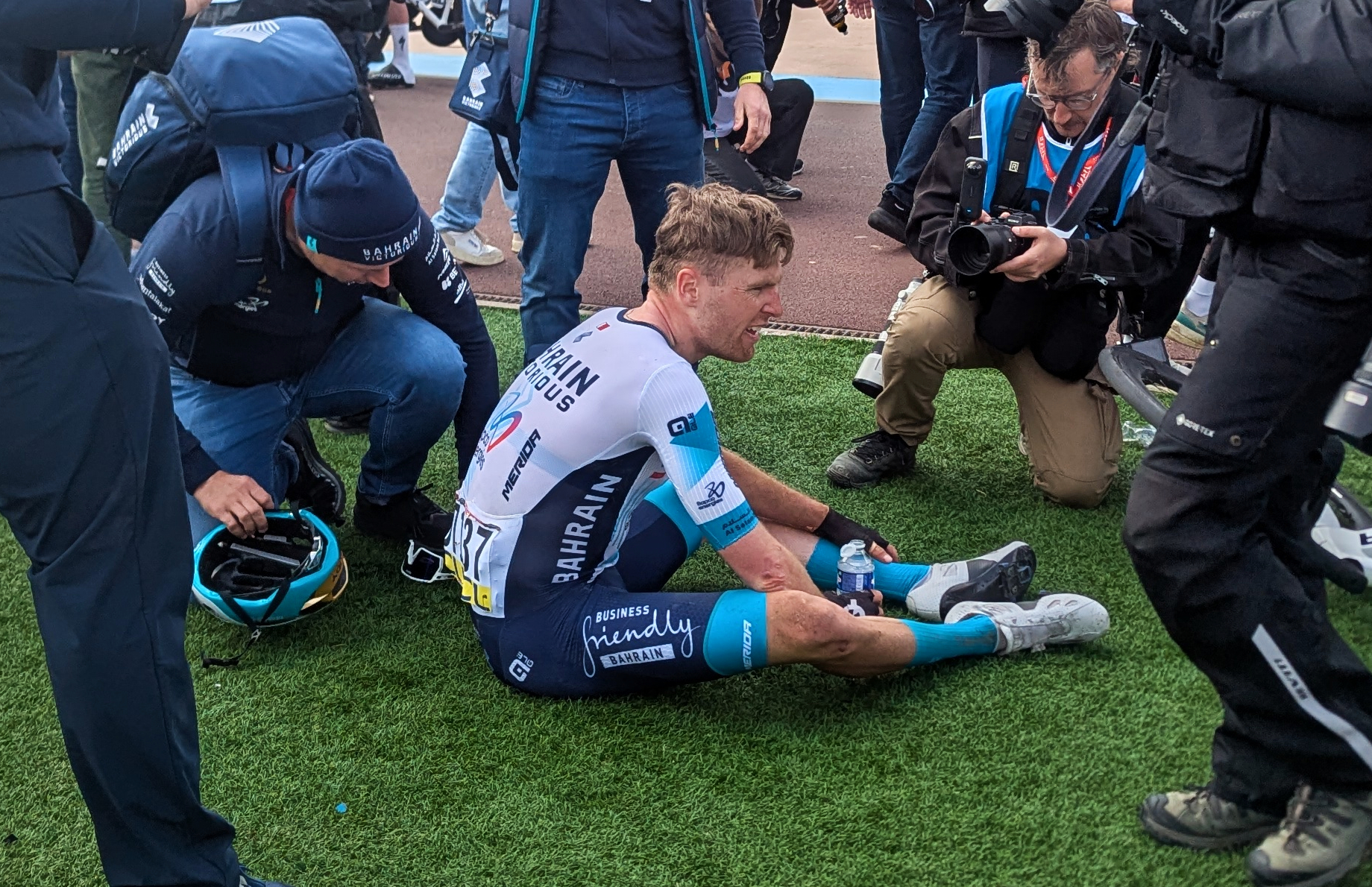 'I'll take a top 10, that's alright in the end' - Fred Wright finishes best of British at Paris-Roubaix
'I'll take a top 10, that's alright in the end' - Fred Wright finishes best of British at Paris-RoubaixBahrain-Victorious rider came back from a mechanical on the Arenberg to place ninth
By Adam Becket Published
-
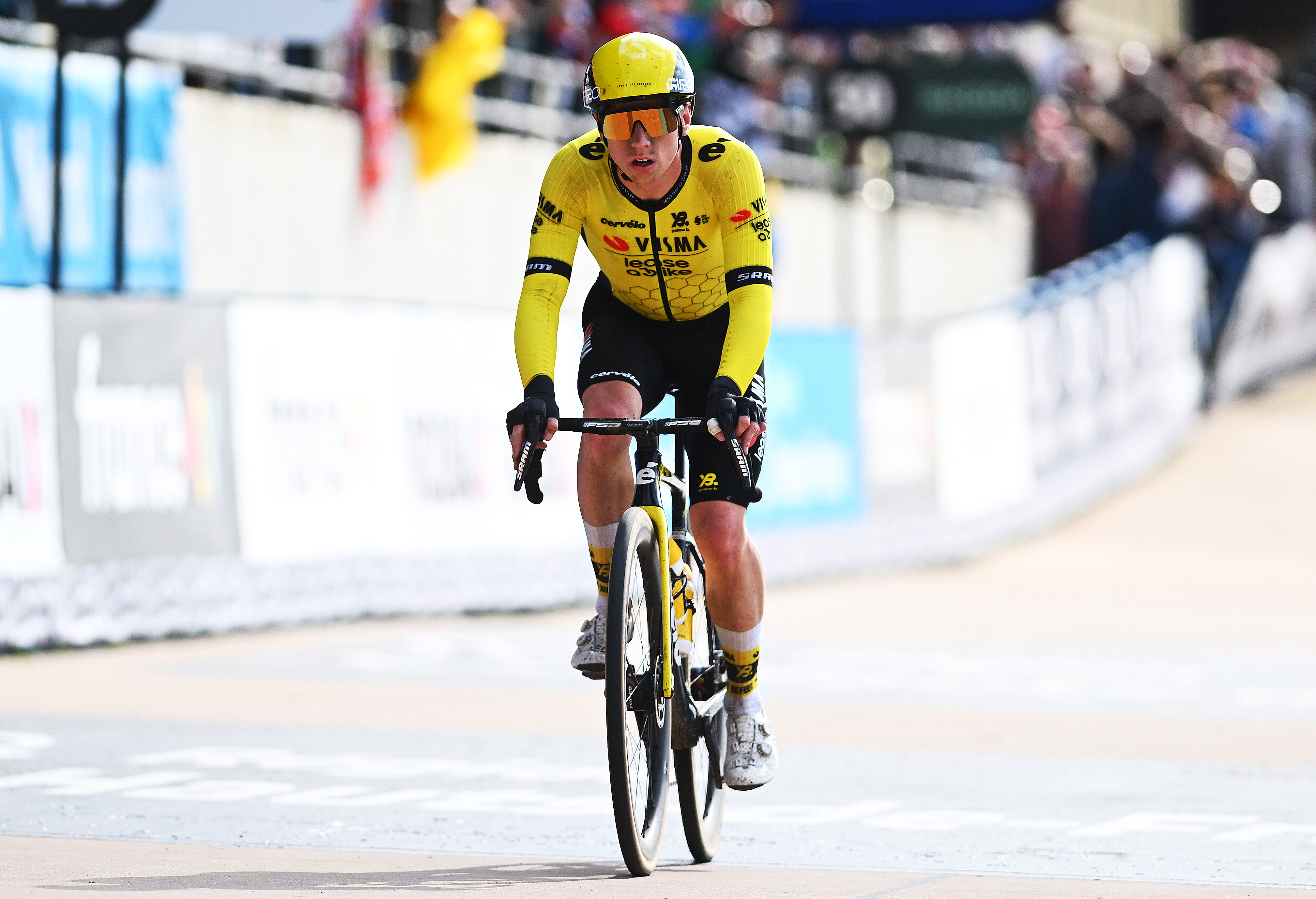 'This is the furthest ride I've actually ever done' - Matthew Brennan lights up Paris-Roubaix at 19 years old
'This is the furthest ride I've actually ever done' - Matthew Brennan lights up Paris-Roubaix at 19 years oldThe day's youngest rider reflects on 'killer' Monument debut
By Tom Davidson Published
-
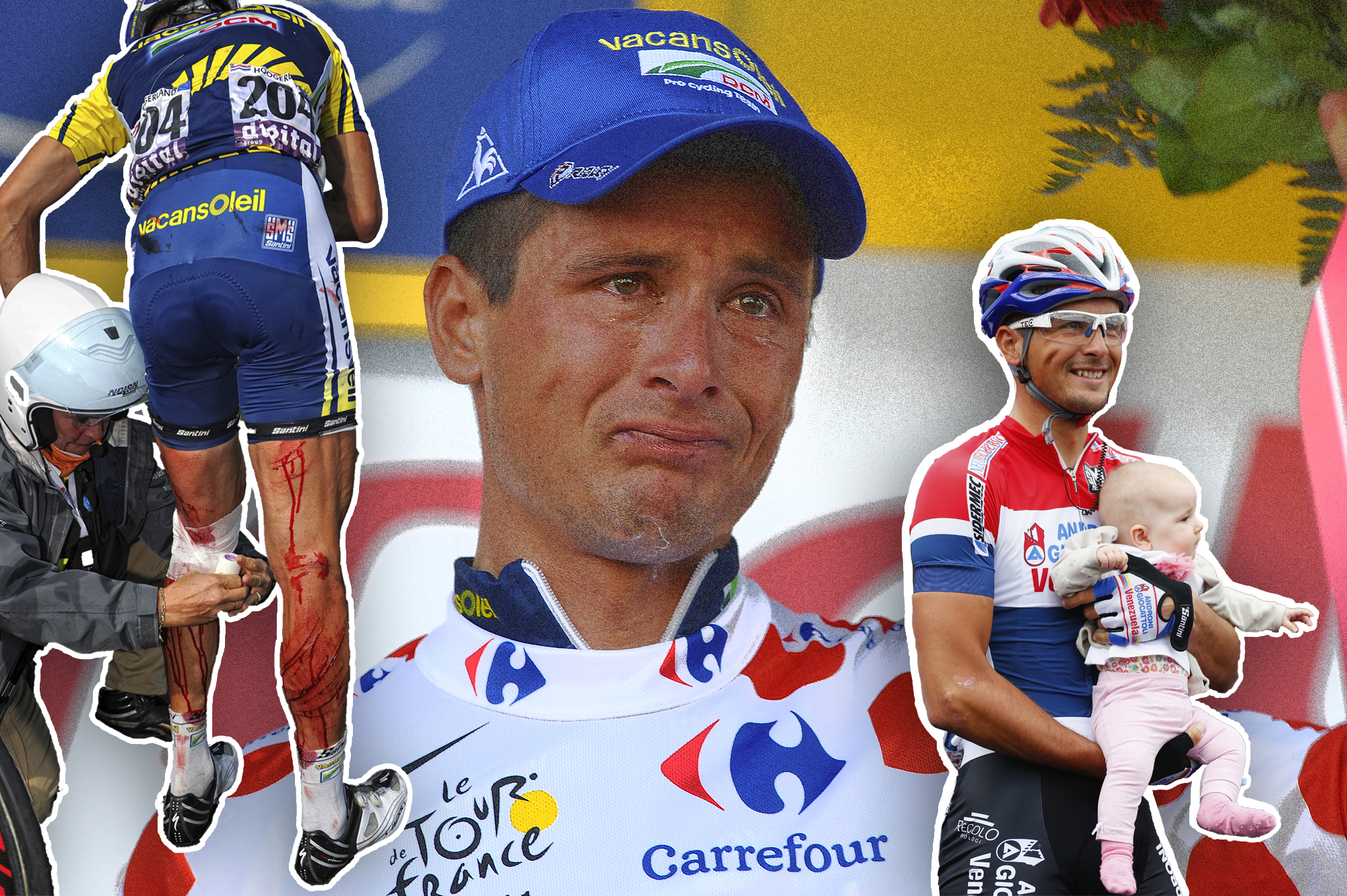 What happened to Johnny Hoogerland?
What happened to Johnny Hoogerland?A career defined by a collision with a TV car at the 2011 Tour de France, we tracked down the Dutch rider to find out how the next 10 years unfolded
By Jonny Long Published
-
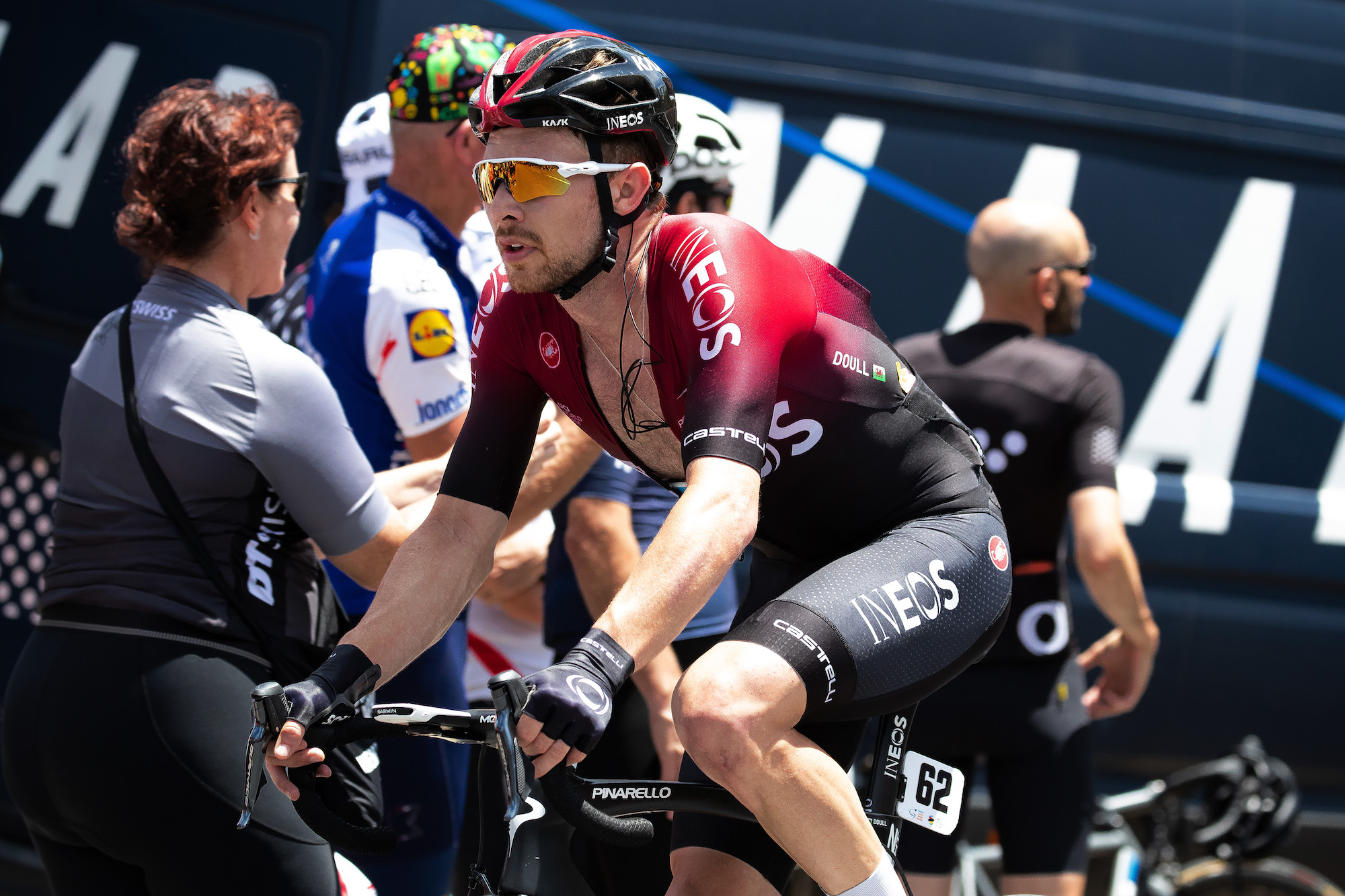 'The domestiques on our team are unsung heroes': Owain Doull Q&A
'The domestiques on our team are unsung heroes': Owain Doull Q&AThe Olympian and Team Ineos man on his Maindy roots, staying motivated and passion for coffee
By David Bradford Published
-
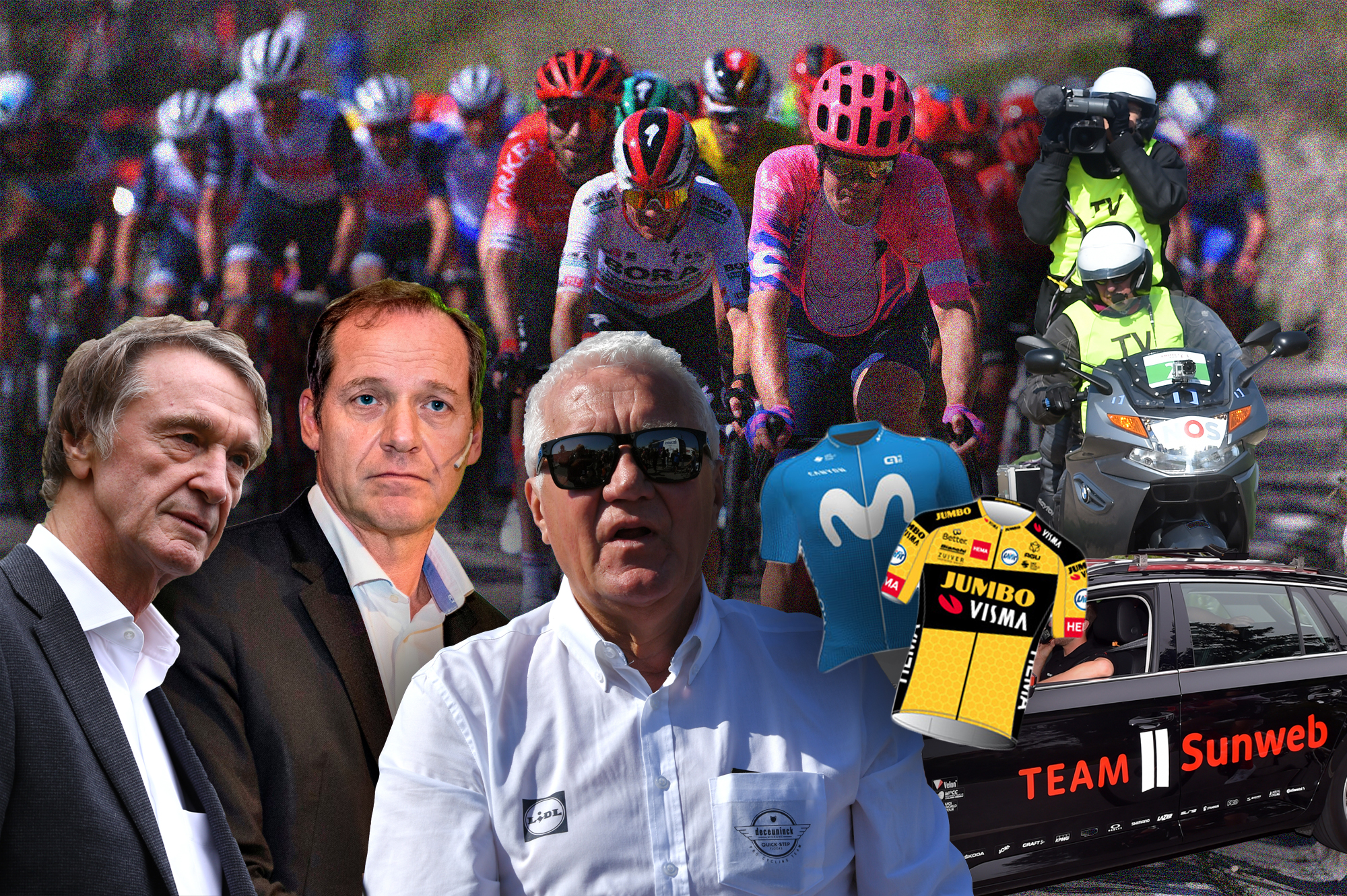 What will happen to pro cycling? Exploring the economic landscape after coronavirus
What will happen to pro cycling? Exploring the economic landscape after coronavirusFrom the fate of various WorldTour teams to whether a behind-closed-doors Tour de France actually solves anything
By Jonny Long Published
-
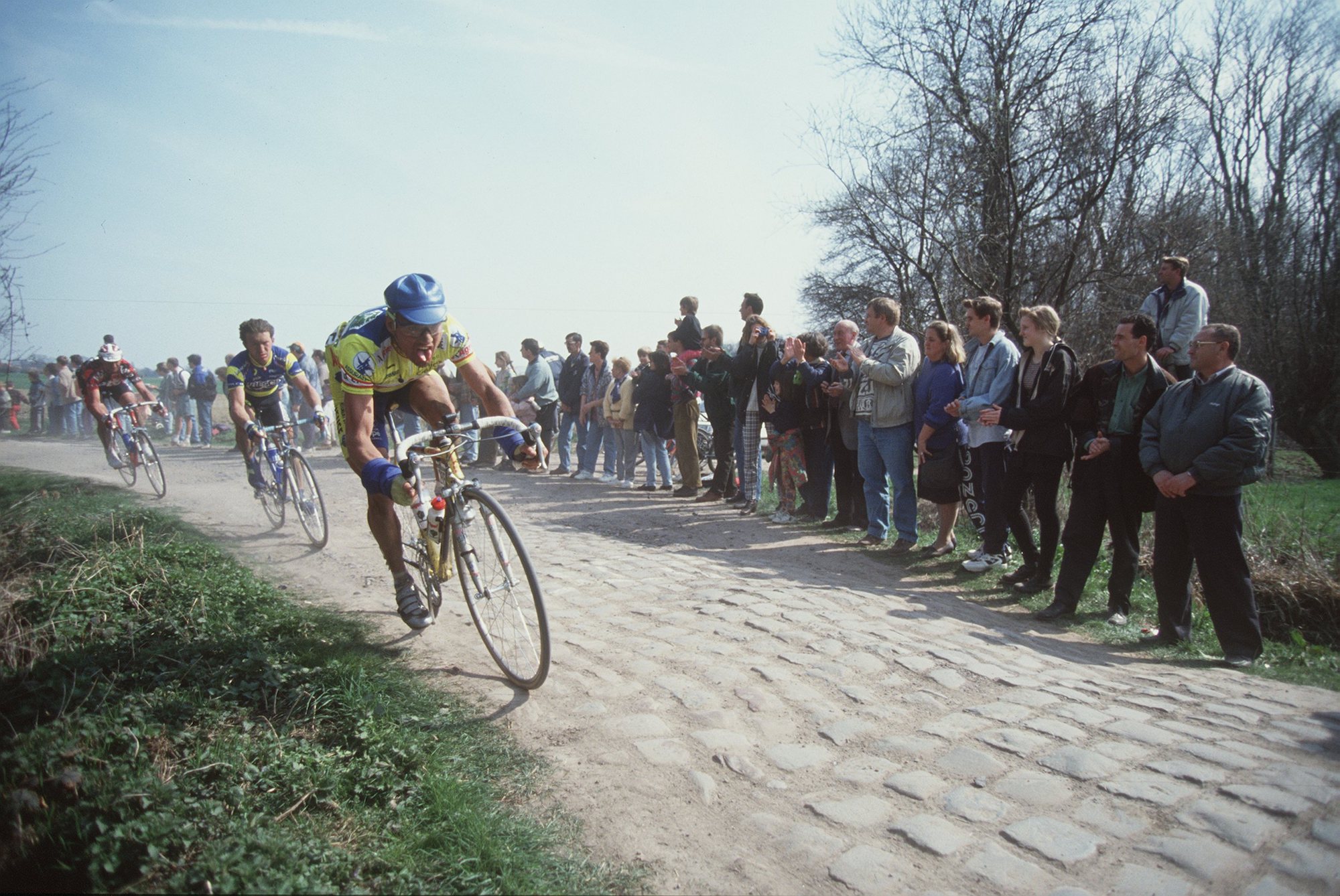 Forging legends: Here are the 10 best Classics of all-time
Forging legends: Here are the 10 best Classics of all-timeDo you agree?
By Cycling Weekly Published
-
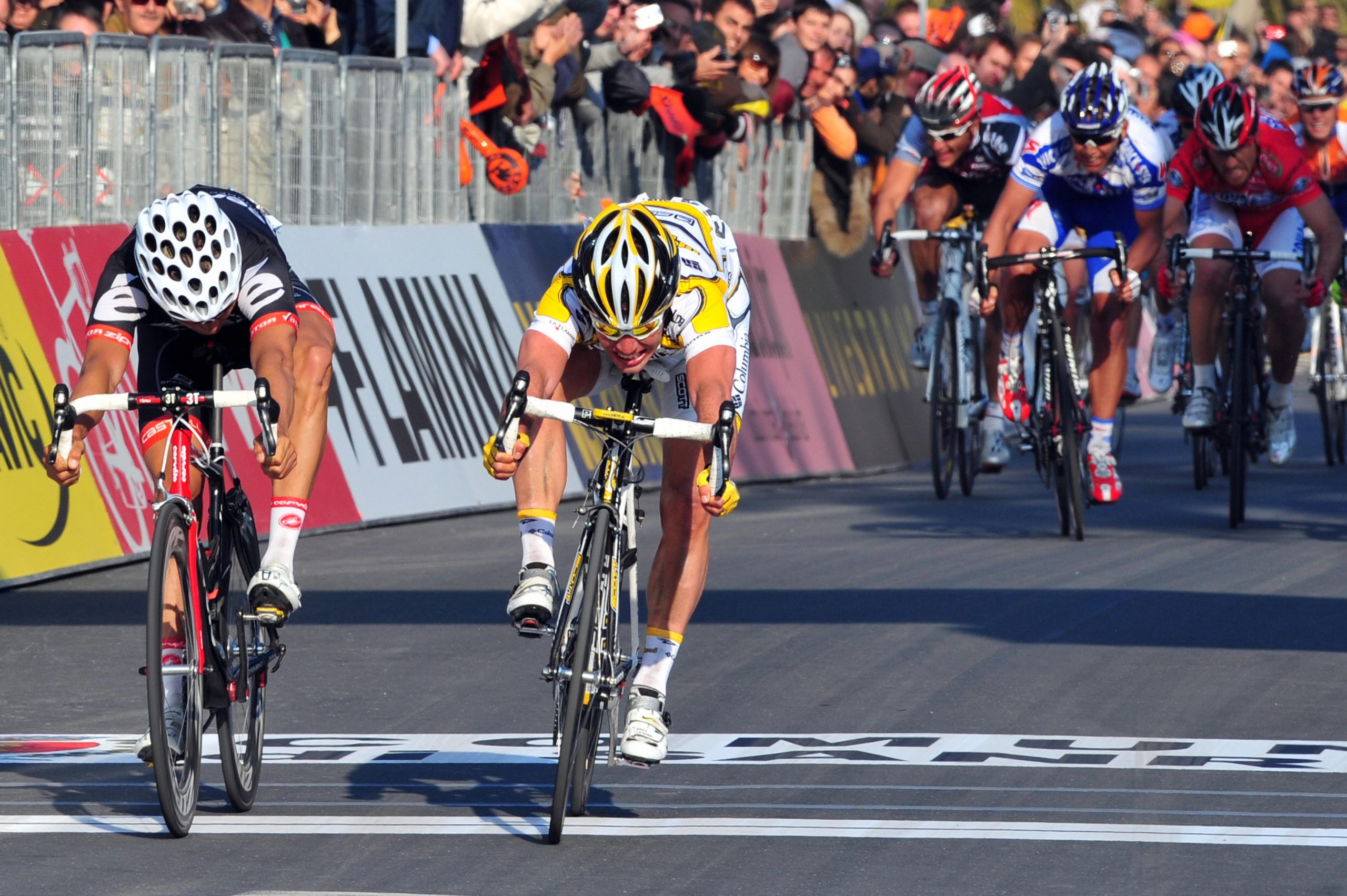 Five of the all-time best Classics rides by Brits
Five of the all-time best Classics rides by BritsFrom Tom Simpson to Lizzie Deignan
By Cycling Weekly Published
-
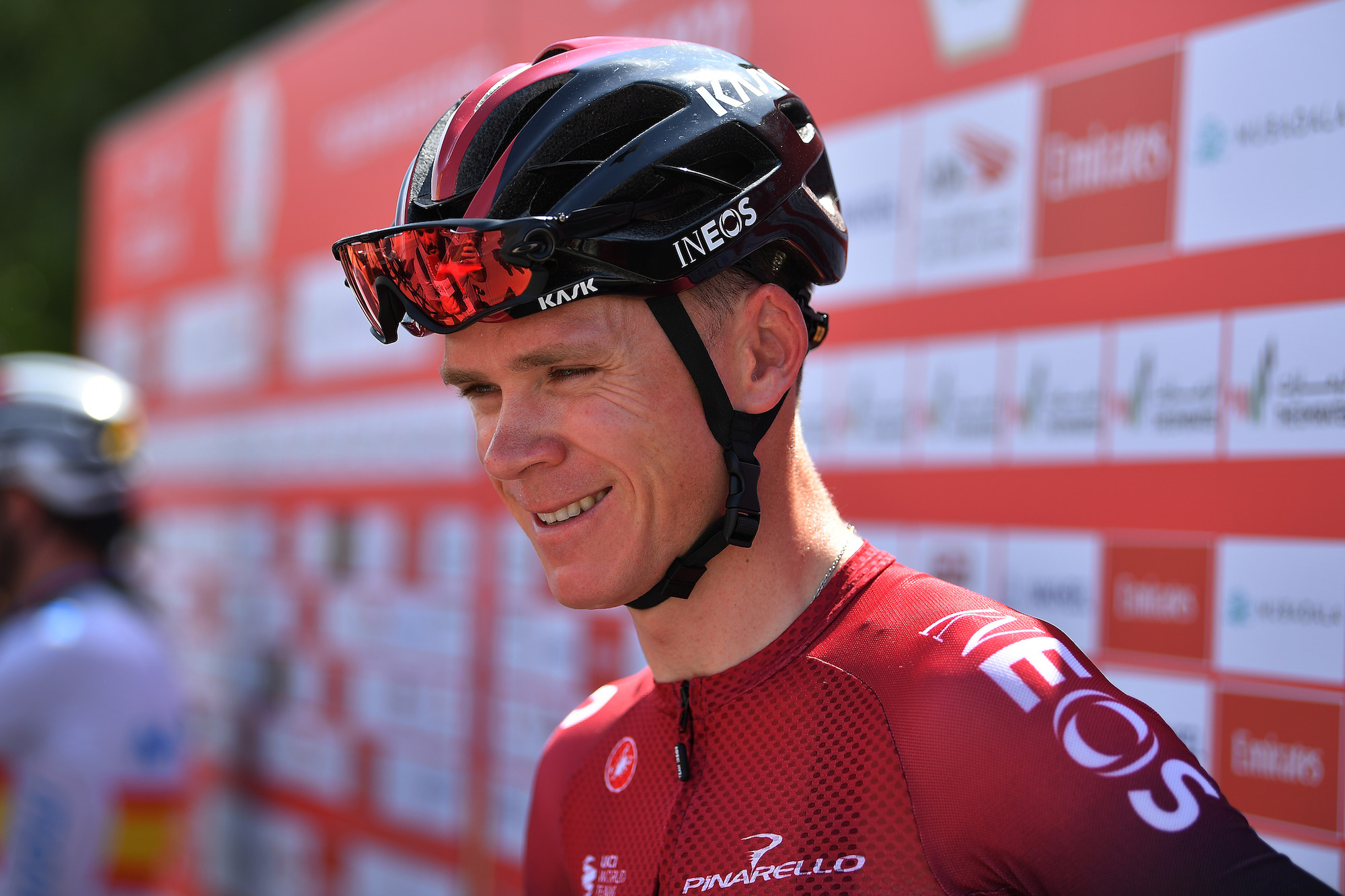 Can Chris Froome recover to win a fifth Tour?
Can Chris Froome recover to win a fifth Tour?After a horrific crash, Froome’s road to recovery has not been easy. James Shrubsall assesses the hurdles he’ll need to overcome to wear yellow in Paris this July
By James Shrubsall Published
-
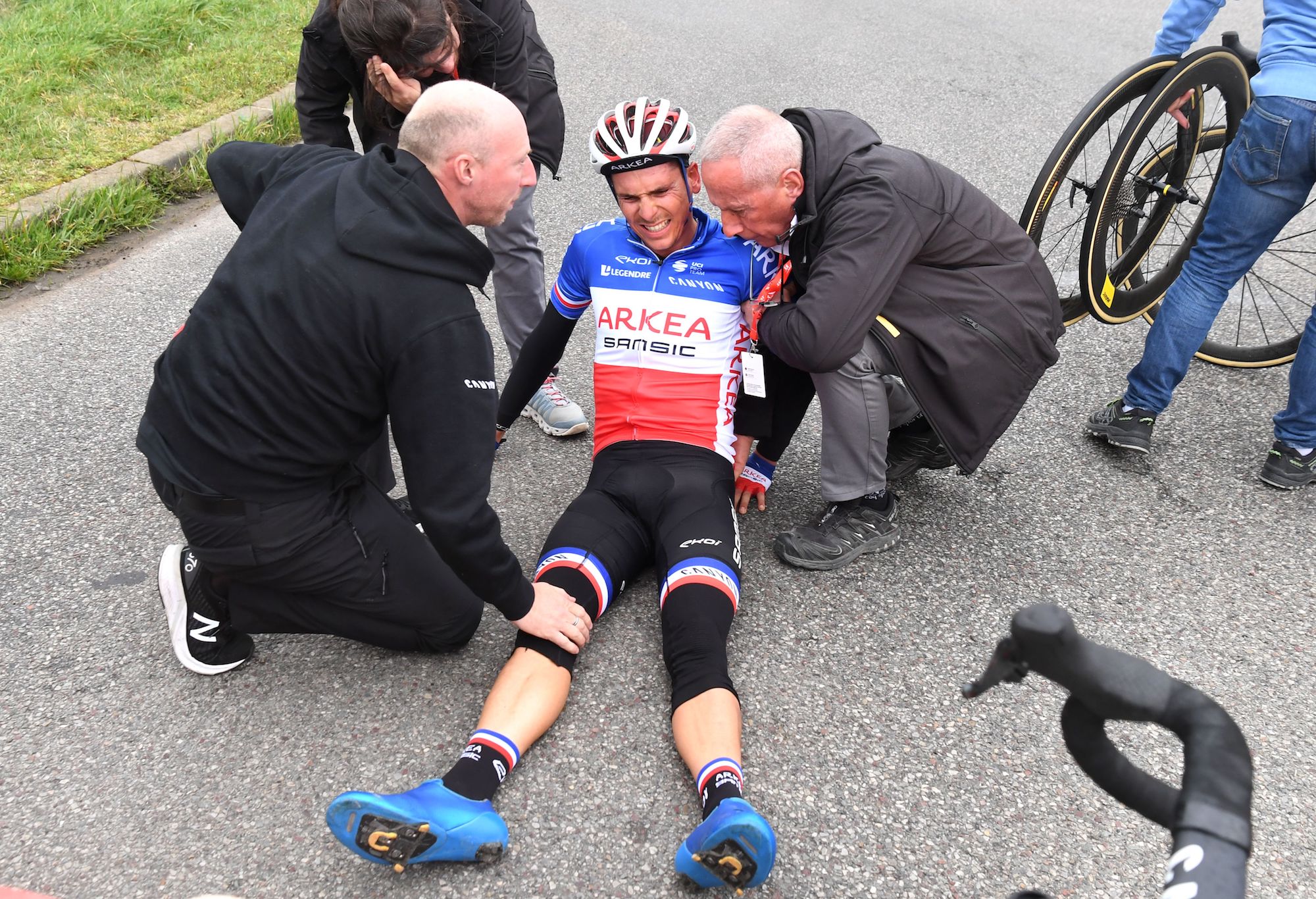 'The rule is bent in most races': Should Warren Barguil have been disqualified from Paris-Nice?
'The rule is bent in most races': Should Warren Barguil have been disqualified from Paris-Nice?Diverting very briefly away from the current coronavirus crisis, something has been nagging at me over the past few days…
By Peter Cossins Published
-
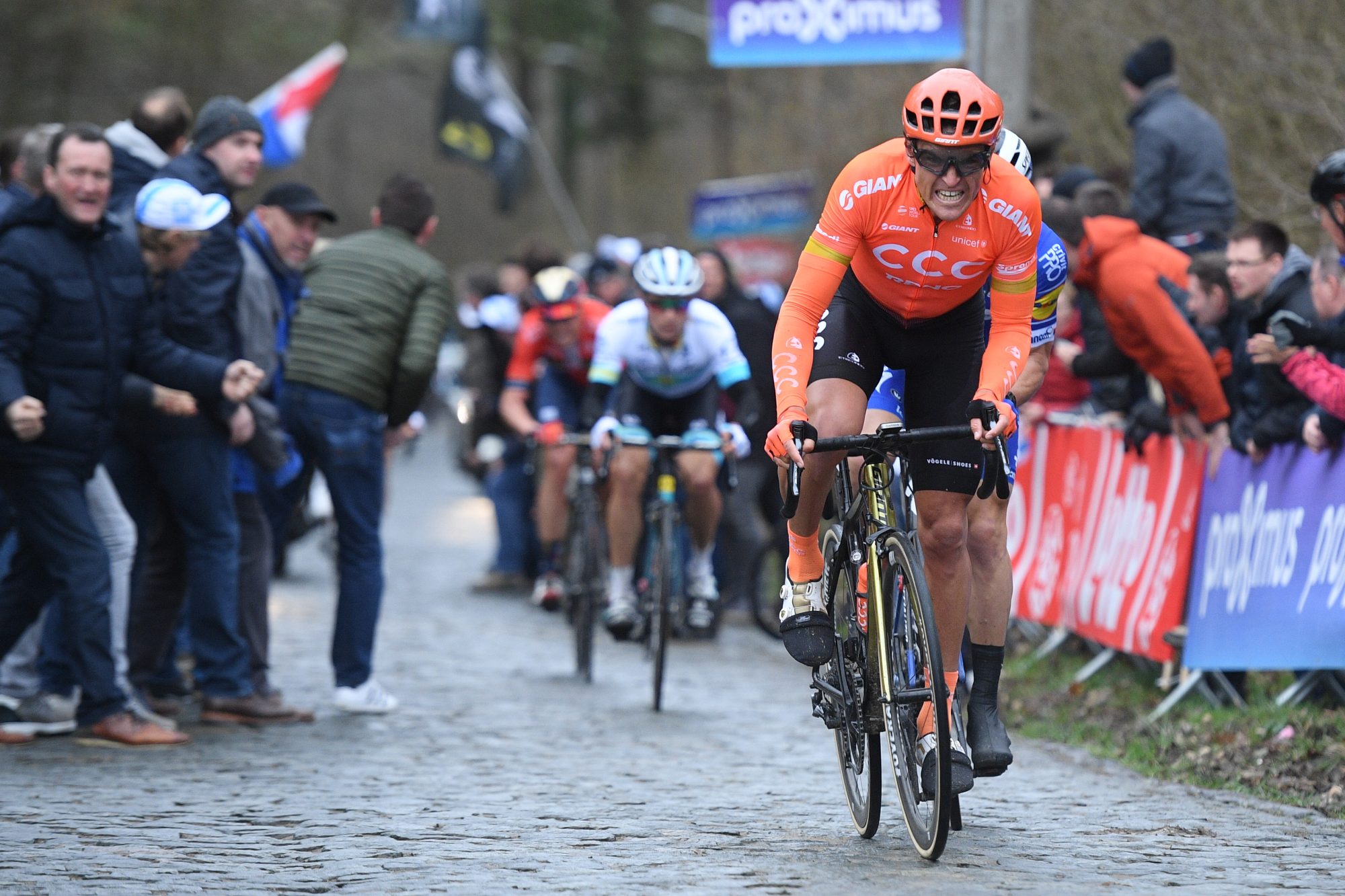 Five things to look out for at Omloop Het Nieuwsblad and Kuurne-Brussels-Kuurne 2020
Five things to look out for at Omloop Het Nieuwsblad and Kuurne-Brussels-Kuurne 2020Things to look out for in the 2020 Opening Weekend
By Stephen Puddicombe Published